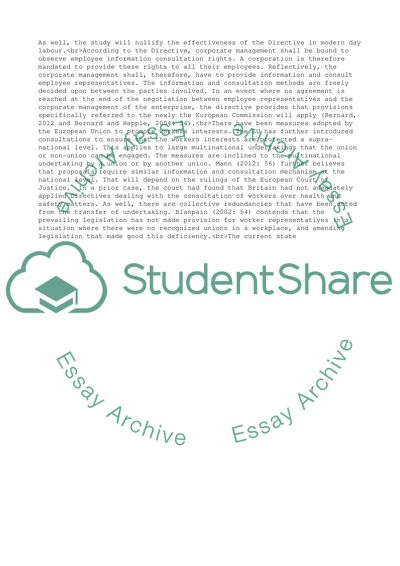Cite this document
(“The European Union's Works Councils and the Information and Essay”, n.d.)
The European Union's Works Councils and the Information and Essay. Retrieved from https://studentshare.org/business/1691033-the-european-unionaposs-works-councils-and-the-information-and-consultation-directives-provide-for-workplace-consultation-and-information-explain-the-main-measures-and-how-these-are-meant-to-work-explain-whether-these-are-effective-forms-of-work
The European Union's Works Councils and the Information and Essay. Retrieved from https://studentshare.org/business/1691033-the-european-unionaposs-works-councils-and-the-information-and-consultation-directives-provide-for-workplace-consultation-and-information-explain-the-main-measures-and-how-these-are-meant-to-work-explain-whether-these-are-effective-forms-of-work
(The European Union'S Works Councils and the Information and Essay)
The European Union'S Works Councils and the Information and Essay. https://studentshare.org/business/1691033-the-european-unionaposs-works-councils-and-the-information-and-consultation-directives-provide-for-workplace-consultation-and-information-explain-the-main-measures-and-how-these-are-meant-to-work-explain-whether-these-are-effective-forms-of-work.
The European Union'S Works Councils and the Information and Essay. https://studentshare.org/business/1691033-the-european-unionaposs-works-councils-and-the-information-and-consultation-directives-provide-for-workplace-consultation-and-information-explain-the-main-measures-and-how-these-are-meant-to-work-explain-whether-these-are-effective-forms-of-work.
“The European Union'S Works Councils and the Information and Essay”, n.d. https://studentshare.org/business/1691033-the-european-unionaposs-works-councils-and-the-information-and-consultation-directives-provide-for-workplace-consultation-and-information-explain-the-main-measures-and-how-these-are-meant-to-work-explain-whether-these-are-effective-forms-of-work.


